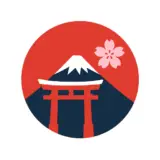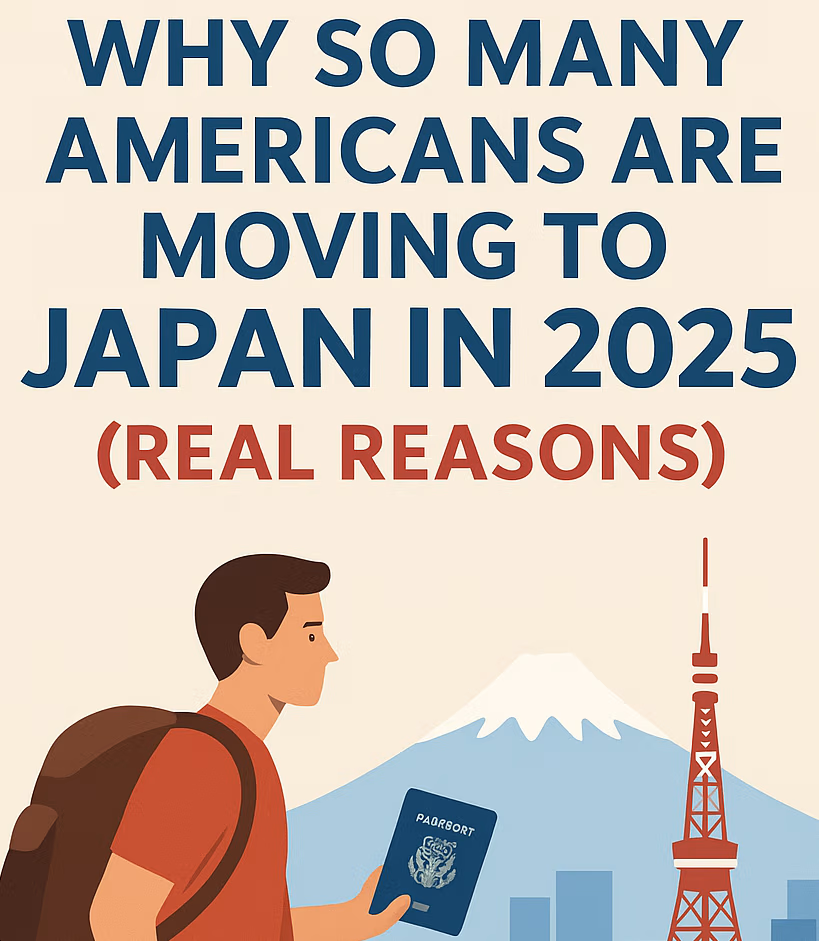✈️ A Quiet Shift: From the U.S. to Japan
If you told me five years ago that thousands of Americans would pack up and move to Japan, I might have laughed.
Fast-forward to 2025 — it’s no longer a fantasy.
More and more Americans are leaving behind the U.S. hustle culture for Japan’s calm, order, and stability.
It’s not about escaping America — it’s about rediscovering balance.
If you’re curious what’s really driving this trend, you’re not alone.
💰 1. The Cost of Living Isn’t as Scary as It Sounds
Most people assume Japan is expensive — Tokyo’s neon skyline gives that impression.
But the reality might surprise you: living in Japan can actually be cheaper than many U.S. cities.
| City | Average Monthly Cost (USD) | Notes |
|---|---|---|
| Tokyo | $1,500–$2,200 | Comparable to Seattle or Boston |
| Osaka | $1,200–$1,800 | Big city life at smaller cost |
| Kyoto | $1,000–$1,600 | Quiet, historic, and affordable |
| Fukuoka | $900–$1,400 | Rising expat favorite |
Healthcare is universal and affordable.
A restaurant meal costs less than a Starbucks latte back home — and you don’t need a car to live comfortably.
👉 Related: Cost of Living in Japan 2024–2025: Kyoto vs Osaka vs Tokyo (Real Data & Honest Comparison)
📊 Data source: Numbeo Japan – Cost of Living Index
🕊️ 2. Safety and Order You Can Feel
For many Americans, Japan’s quiet streets and clean public spaces are almost shocking.
You can walk home at 2 AM, your child can ride the train alone, and your lost wallet will likely be returned intact.
That sense of peace — the lack of fear — is one of Japan’s most underrated luxuries.
It’s the kind of calm you don’t realize you’ve been missing until you feel it.
💼 3. New Job and Visa Opportunities
Japan’s population is aging fast, and the government is opening doors wider than ever before.
Foreign professionals, freelancers, and entrepreneurs are all welcome under new visa categories.
- Digital Nomad Visa (2025): For remote workers and freelancers.
- Business Manager Visa: For entrepreneurs launching startups.
- Work & Study Programs: For students balancing education and part-time work.
👉 Related: Japan Digital Nomad Visa: Your 2025 Guide
🔗 Official source: Ministry of Foreign Affairs of Japan – Visa Information
🌸 4. Culture Shock — But in a Good Way
Americans often describe Japan as “peacefully intense.”
It’s a place where trains run to the second, people bow instead of shout, and even the busiest city feels strangely quiet.
At first, it can feel alien — but soon you’ll realize how much emotional space that order creates.
Fewer arguments, less chaos, more room to breathe.
👉 Related: Living in Japan Without Speaking Japanese — Is It Really Possible?
🏠 5. Simple, Organized Living
One of the biggest lifestyle shifts Americans notice is simplicity.
Japanese apartments are smaller, but smarter. Every inch has a purpose.
Minimalism isn’t an aesthetic here — it’s a way of life.
You own less, but live more.
❤️ 6. Work-Life Balance and Respect
Japanese work culture has its flaws, but it’s changing fast.
More companies are embracing flexible hours, hybrid work, and “no overtime” policies.
When you’re off the clock, you’re off.
For many Americans, that’s life-changing.
You can work hard and have a life — something rare back home.
📰 More on this trend: NHK World News – Work Reform in Japan (English)
💬 Real Talk: It’s Not Perfect
Japan isn’t paradise.
The bureaucracy can be frustrating, the language barrier is real, and sometimes the social rules feel rigid.
But for many Americans, the trade-offs are worth it.
👉 Related: How I Came to Japan: From Dream to Reality
If you come with patience and respect for the culture, Japan rewards you with peace, purpose, and safety.
🌏 Final Thoughts
Japan isn’t about escaping life — it’s about redesigning it.
Americans moving here aren’t chasing a fantasy; they’re seeking balance, stability, and meaning.
If you’ve ever dreamed about living in Japan, maybe 2025 is the time to start.
After all, paradise isn’t perfect — but Japan comes closer than most places.
Discover more from Ali in Japan
Subscribe to get the latest posts sent to your email.

